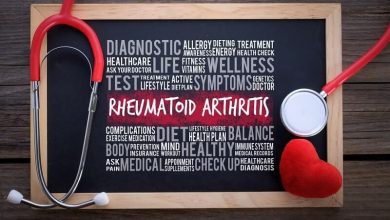“Atypical” RA Symptoms That Turn Out to Be Quite Typical


Having a chronic illness like rheumatoid arthritis can be difficult to come to terms with, and it doesn’t help that chronic illness can often leave you feeling alone and with no one to relate to. You may even feel like your symptoms or problems aren’t like what you’re reading about online or hearing from your doctor. But some of those problems that you think are atypical might actually be pretty standard.
1. Your hands aren’t affected (at least for awhile).
One of the first signs of RA is joint stiffness. This can come on either slowly or as quickly as one or two days. Many people experience this joint pain in their hands during the onset of RA, but there are many other signs, and joint pain in your hands does not have to be one of them. Other symptoms of RA include: fatigue, morning stiffness, joint pain on both sides of your body, minor joint swelling, low fever along with joint pain, and decrease in range of motion.
2. Swelling isn’t obvious.
Some may assume that because your joints don’t look swollen at first glance, you don’t have rheumatoid arthritis; but sometimes swelling can be difficult to detect. Swelling will sometimes be internal or show on the underside, or will not be great enough to be easily recognized.
3. You are also diagnosed with a second condition
If you are diagnosed with osteoarthritis and RA, it may be because each disease is affecting different parts of your body. For example, OA may be affecting your spine while RA is affecting your knees.
Those with RA have an increased risk of osteoporosis due to significant bone loss as a side effect of medication, inactivity caused by RA complications, or as a direct result of RA.
Fibromyalgia (FMS) and RA manifest themselves in very similar ways. Those diagnosed with RA are more likely to develop FMS, but those diagnosed with FMS are not more likely to develop RA.
Sjogren’s is commonly linked with RA and often develops in conjunction with arthritis.
People with Hashimoto’s, a disease affecting the thyroid, are at a very high risk for developing RA.
Those with RA also have an increased risk for many other problems including skin issues, eye complications, heart and blood vessel disease, disease of the blood, and lung problems.
All of these increased risks are one of the many reasons why it is so important to take care of yourself when you have RA.
4. You don’t know anyone else diagnosed with RA and feel alone.
According to the Centers for Disease Control (CDC), about 1.5 million Americans have rheumatoid arthritis. Onset usually occurs between the ages of 30 and 60 in women and slightly later for men. There are many support systems available to people with RA if you are looking for encouragement and understanding. For example, Rheumatoid Connect’s discussion page gives you the opportunity to get advice and share your experiences with people who know what you are going through.
5. RA medication gives you terrible side effects.
Unfortunately, there is no cure for rheumatoid arthritis, but medication may be able to slow or stop the progression of the disease. Drugs are not going to affect everyone in the same way so it’s important to report any side effects to your doctor. He/she may be able to prescribe you a different medication, change your dosage, or give you something to treat drug side effects.
6. RA is causing health problems outside of the joints.
As explained above, RA increases your risk of developing a variety of other health problems. If you are having problems that are unusual for you and your RA, be sure to talk to your doctor to make sure you do not have another health condition.
7. You have symptoms of RA, but your lab tests are normal.
There are four possible tests that doctors use to decide if you have RA. Some doctors will rely on these tests completely, while some only use them as a guideline. It is possible for tests to come up with a false negative, and there is no test that can definitively measure RA, diagnose RA, or gauge the degree of RA activity within a patient. Be sure that your doctor is paying attention to you and your health issues, not just your test results.
Rheumatoid arthritis is frustrating, but it can be comforting to know that you are not the only one experiencing all of these complications. Monitor your condition closely so that you stay aware of symptoms that you may not be expecting as a “typical” part of your RA diagnosis.





